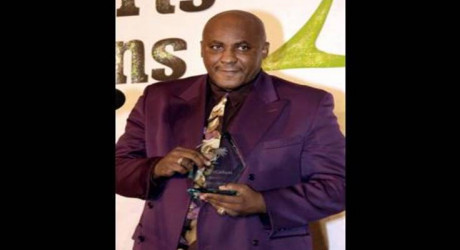The temporary travel flexibility to the United States ended Sunday night as
it reverted to the normal regime under the Western Hemisphere Travel Initiative
(WHTI).
This means that Americans, Canadians, Mexicans and Bermudians are required to have passports or other accepted documents that establish their identities and nationalities to enter or re-enter the United States from within the Western Hemisphere.
With the Caribbean relying heavily on American tourists for its survival, the January 2007 implementation, of the WHTI has reportedly already accounted for a 10 per cent decrease in visitor arrivals across the region.
Under the WHTI's temporary regime of relief, U.S. citizens traveling to Canada, Mexico, the Caribbean, and Bermuda who had applied for but not yet received passports were allowed free movement across American borders by air with a government issued photo identification and Department of State official proof of application.
Children under the age of 16 traveling with their parents or legal guardians were allowed to travel with the child's proof of application.
The WHTI passport requirement will not apply to cruise ship passengers making the trip before January 31, 2008.
The US Department of Homeland Security indicates that plans are afoot to replace the practice of accepting solely oral declarations of citizenship.
When this comes into force, citizens entering the US could be required to present a valid U.S. passport or other documents.
The WHTI requirements arose out of recommendations made by the 9/11 Commission, in the U.S.
They were subsequently passed into law by the US Congress as part of the Intelligence Reform and Terrorism Prevention Act of 2004.
In the meantime, Tourism Minister Edmund Bartlett is expressing optimism that Jamaica will overcome the obstacles created by the re-imposition of the WHTI.
He contends that any fall-out on visitor arrivals can easily be mitigated by an aggressive marketing programme.
"The fact the stay on the execution of the passport requirements expires today will not change our emphasis but the good thing about this is that the compliance rate is significantly improved and the turn around time has also been significantly reduced from 14 to 16 weeks down to 12 weeks," said Mr. Bartlett.
Mr. Bartlett is of the view that this has resulted in a lessening of the backlog in the US systems.
In the meantime, tourism interests still harbour concerns about the heavy backlog in the US system for processing of passport applications.
President of the Jamaica Hotel and Tourist Association Wayne Cummings says while he is confident that the Tourism Minister will be doing all he can to prevent any fall-out, the backlog could impede the flow of tourists into Jamaica.
This means that Americans, Canadians, Mexicans and Bermudians are required to have passports or other accepted documents that establish their identities and nationalities to enter or re-enter the United States from within the Western Hemisphere.
With the Caribbean relying heavily on American tourists for its survival, the January 2007 implementation, of the WHTI has reportedly already accounted for a 10 per cent decrease in visitor arrivals across the region.
Under the WHTI's temporary regime of relief, U.S. citizens traveling to Canada, Mexico, the Caribbean, and Bermuda who had applied for but not yet received passports were allowed free movement across American borders by air with a government issued photo identification and Department of State official proof of application.
Children under the age of 16 traveling with their parents or legal guardians were allowed to travel with the child's proof of application.
The WHTI passport requirement will not apply to cruise ship passengers making the trip before January 31, 2008.
The US Department of Homeland Security indicates that plans are afoot to replace the practice of accepting solely oral declarations of citizenship.
When this comes into force, citizens entering the US could be required to present a valid U.S. passport or other documents.
The WHTI requirements arose out of recommendations made by the 9/11 Commission, in the U.S.
They were subsequently passed into law by the US Congress as part of the Intelligence Reform and Terrorism Prevention Act of 2004.
In the meantime, Tourism Minister Edmund Bartlett is expressing optimism that Jamaica will overcome the obstacles created by the re-imposition of the WHTI.
He contends that any fall-out on visitor arrivals can easily be mitigated by an aggressive marketing programme.
"The fact the stay on the execution of the passport requirements expires today will not change our emphasis but the good thing about this is that the compliance rate is significantly improved and the turn around time has also been significantly reduced from 14 to 16 weeks down to 12 weeks," said Mr. Bartlett.
Mr. Bartlett is of the view that this has resulted in a lessening of the backlog in the US systems.
In the meantime, tourism interests still harbour concerns about the heavy backlog in the US system for processing of passport applications.
President of the Jamaica Hotel and Tourist Association Wayne Cummings says while he is confident that the Tourism Minister will be doing all he can to prevent any fall-out, the backlog could impede the flow of tourists into Jamaica.









 All feeds
All feeds







